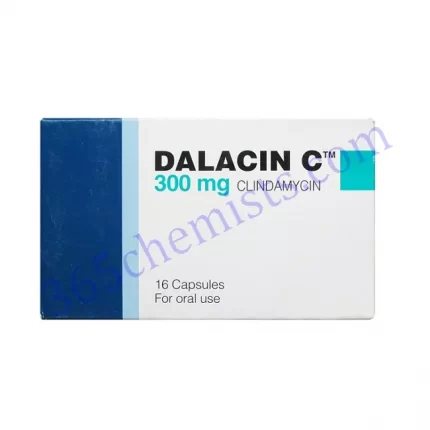Lyrica 75 Capsule (Pregabalin 75mg): A Comprehensive Overview
Pregabalin 75 mg, which is present in Lyrica 75 Capsule, is a prescription medication that is well-known for its effectiveness in treating a range of neurological disorders. The active component, pregabalin, is a member of the anticonvulsant or antiepileptic drug class. It works as a medication by modifying the way that specific neurotransmitters in the brain function, which helps to relieve neuropathic pain, seizures, and other associated conditions.
Understanding Pregabalin and its Mechanism of Action
Pregabalin, the main ingredient in Lyrica 75 Capsule, functions by attaching itself to the central nervous system’s voltage-gated calcium channel alpha-2-delta subunit. This interaction reduces the hyperexcitability of neurons by blocking the release of several neurotransmitters, including substance P, noradrenaline, and glutamate. As a result, this modulation lowers neural excitability, which in turn reduces neuropathic pain and seizure-related symptoms.
Indications for Lyrica 75 Capsule
Lyrica 75 Capsule is used to treat a number of neurological conditions, such as fibromyalgia, postherpetic neuralgia, and neuropathic pain linked to diabetic neuropathy. It is also recommended for individuals with epilepsy as an adjuvant therapy for partial-onset episodes. Pregabalin is a significant treatment choice for people suffering from these severe illnesses due to its versatility.
Administration and Dosage
The prescribed Lyrica 75 Capsule (Pregabalin 75mg) dose may change based on the particular indication being treated, the patient’s age, renal function, and any concurrent drugs. For neuropathic pain problems, the usual starting dose is 75 mg taken twice a day; the dosage is then adjusted based on the patient’s response to treatment and tolerability. The starting dose for the adjunctive treatment of partial-onset seizures is 75 mg twice day. If needed, this dose can be titrated up to the maximum suggested amount of 600 mg daily.
Adverse Effects and Precautions
Like any drugs, Lyrica 75 Capsule has certain side effects that patients should be aware of even though it is usually well-tolerated. Dizziness, sleepiness, dry mouth, impaired vision, and weight gain are common adverse effects. Pregabalin can induce sleepiness and reduced cognition, thus patients should be cautious when doing tasks that require mental attention, such driving or operating heavy machinery. Moreover, it is best to avoid stopping Lyrica 75 Capsule suddenly since this might cause withdrawal symptoms including anxiety, headaches, nausea, and sleeplessness. When using this drug, patients with a history of substance addiction or dependency should be thoroughly watched.
Drug-Drug Interactions
Like any pharmacological substance, Lyrica 75 Capsule may interact with other drugs, changing their effectiveness or raising the possibility of negative side effects. Pregabalin’s sedative effects may be exacerbated by concurrent use of central nervous system depressants, such as alcohol, benzodiazepines, or opioids, necessitating dosage modifications or careful monitoring. Furthermore, pregabalin may intensify the effects of some antihypertensive medications, resulting in an excessive reduction of blood pressure. To reduce the possibility of drug interactions, patients should tell their healthcare practitioner about all of their drugs, including prescription, over-the-counter, and herbal supplements.
Special Populations
Dosage changes may be required in particular groups, such as the elderly, patients with renal impairment, or those with hepatic dysfunction, in order to prevent Pregabalin buildup and reduce the risk of side effects. Because pregabalin is mainly eliminated intact in the urine, renal function should be evaluated before starting medication and then again on a regular basis thereafter. Furthermore, as the safety profile of pregabalin in these populations has not been well established, care should be used when giving Lyrica 75 Capsule to pregnant or nursing women.
Potential Future Developments
The knowledge and management of disorders for which Lyrica 75 Capsule is prescribed may continue to evolve as long as neurology and pharmacology research is conducted. Novel molecular pathways being targeted by emerging medicines or novel drug delivery methods may provide better therapeutic alternatives with better tolerance and effectiveness characteristics. Furthermore, continuing clinical research could reveal novel uses for pregabalin, extending its present range of therapeutic applications.
Patient Education and Counseling
Effective patient counselling and education are crucial elements of Lyrica 75 Capsule medication effectiveness. Healthcare professionals should take the time to fully explain to patients and their carers the mode of action, anticipated benefits, possible adverse effects, and appropriate administration practices. Optimising treatment results and reducing the risk of problems can be achieved by stressing the need of adhering to specified dose regimens and scheduling regular follow-up sessions.
Collaborative Care Approach
Because neurological illnesses are complex, it is generally advantageous to use a collaborative care strategy that involves medical professionals from different disciplines. Together, neurologists, pain management experts, general practitioners, chemists, and other allied health providers may create thorough treatment programmes that are customised for each patient’s needs. With an interdisciplinary approach, comprehensive treatment is guaranteed, and the chances of successful therapy are increased.
Conclusion
In summary, Lyrica 75 Capsule (Pregabalin 75mg) is a beneficial treatment choice for those experiencing fibromyalgia, seizures, and neuropathic pain. Pregabalin efficiently reduces the symptoms associated with these incapacitating illnesses by modifying neuronal excitability within the central nervous system, so enhancing the quality of life for a great number of people. Healthcare professionals must, however, use caution when prescribing this medication, taking into account any potential side effects, drug interactions, and the requirement for customised dose schedules. In the treatment of neurological problems, Lyrica 75 Capsule is still a vital tool when used in conjunction with appropriate monitoring and patient education.












